Fantasy risk or reward: How The Rings of Power breaks with Lord of the Rings tradition
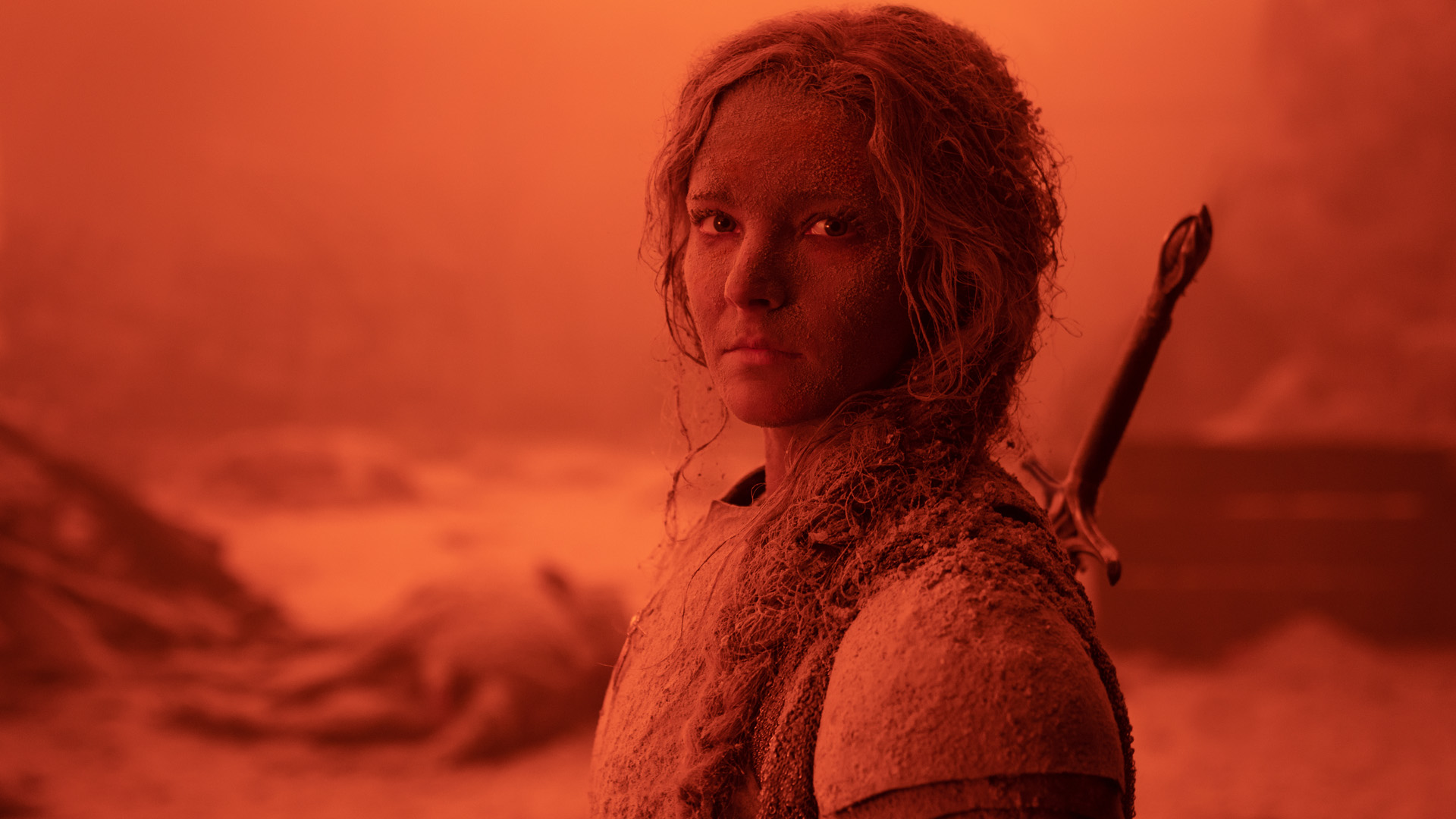
Sign up for breaking news, reviews, opinion, top tech deals, and more.
You are now subscribed
Your newsletter sign-up was successful
J.D. Payne is speaking Italian, not Elvish. It's not unusual to hear The Rings of Power's co-showrunner – and huge Lord of the Rings fan, no less – demonstrate his flair for linguistics. After all, Payne is someone who can seamlessly slip into any of Middle-earth's multiple languages.
It's odd, though, to hear Payne use a real-world language – outside of his native English – to convey a valid point about The Rings of Power, the show he and long time friend and co-creator Patrick McKay have spent the past five years meticulously crafting. It's an epic fantasy Prime Video series set in J.R.R. Tolkien's legendary world of The Lord of the Rings, and one that's sure to provoke intense online debates and watercooler discussions for the rest of the year.
Ahead of release, Payne, McKay, and everyone associated with The Rings of Power knew how risky and divisive it could be. Whether it's the creative liberties they've taken with Tolkien's works or its eyewatering production costs – its first season cost an estimated $1 billion – The Rings of Power is a massive gamble. Frankly, it has the power to alienate diehard Tolkien fans and shape the very future of Amazon's streaming service itself.
But, if Tolkien's beloved fantasy novel series has taught Payne anything, it's that there's always hope. Even in the darkest of times amid internal and external pressures, something new and wonderful can exist or be created.
"We put that pressure on ourselves because we love the material so much," Payne tells TechRadar. "But it's beloved by many people, so we wanted to make sure we got it right. But we also knew adapting something this big would be a challenge. There's an Italian phrase – Traduttore, traditore – which means 'To translate is to betray', but you hope the translation brings out something special. We think there are new things here that audiences will really enjoy."
The journey begins
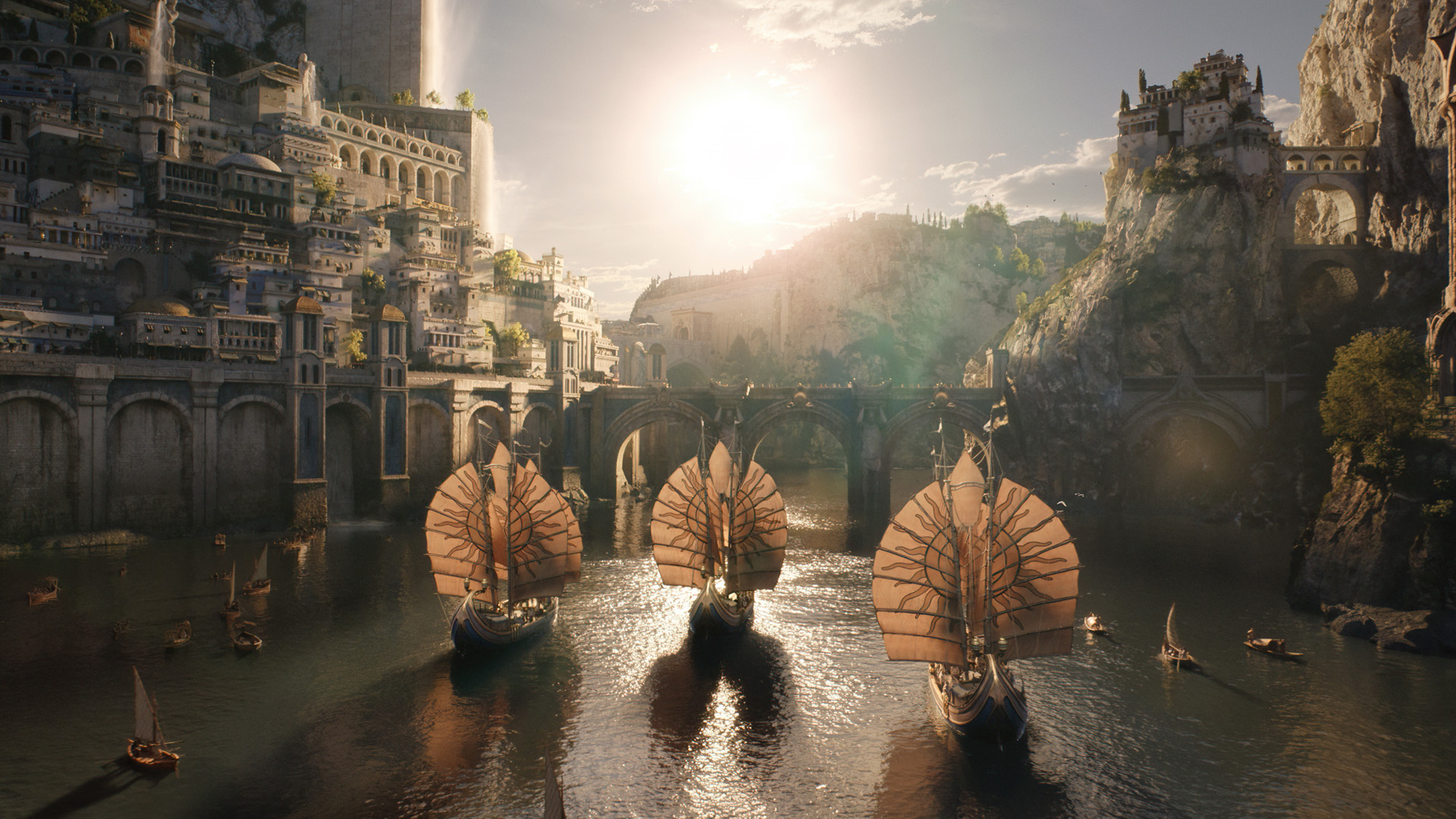
Set during Middle-earth's Second Age, The Rings of Power tells the multi-narrative story of the forging of the titular rings, the dark lord Sauron's dictatorial attempt to rule the world, and how Middle-earth's races unite to stop him.
That's a brief outline of the show's five-season arc, anyway. With the Second Age comprising 3,500 years of Middle-earth history – the longest era in Tolkien's fictional world – The Rings of Power isn't devoid of stories to tell, locations to visit, and characters to establish or reintroduce to viewers.
Sign up for breaking news, reviews, opinion, top tech deals, and more.
And yet, some Tolkien aficionados have already vowed they won't watch The Rings of Power. The predominant reason? Amazon's Lord of the Rings condenses the Second Age into a period of decades rather than millennia. It's the first of a few creative deviations from Tolkien's books that has ruffled some fans' feathers, leading sections of the fanbase to suggest they'll boycott Amazon's TV series.
We think there are new things here that audiences will really enjoy
J.D. Payne, co-showrunner
Payne and McKay had already prepared themselves for such a backlash, though. The pair knew that, in order to tell a story using the serialized TV format, some poetic license had to be taken. That included truncating the Second Age's timeline and making certain characters – who don't meet in Tolkien's books or appendices – collide with each other. It's a decision that allowed the duo to circumnavigate the prospect of killing off individuals after a season or two, and be forced to introduce new characters in future seasons.
"We know people might take issue with the fact you're going to break something by marrying an event from year 400 with something that doesn't happen until year 1000," Payne says. "But Tolkien himself was a translator, and part of translation is taking things from one form to another. So, we knew as long as we stayed true to the text, characters, locations, themes and major events, it would come out right."
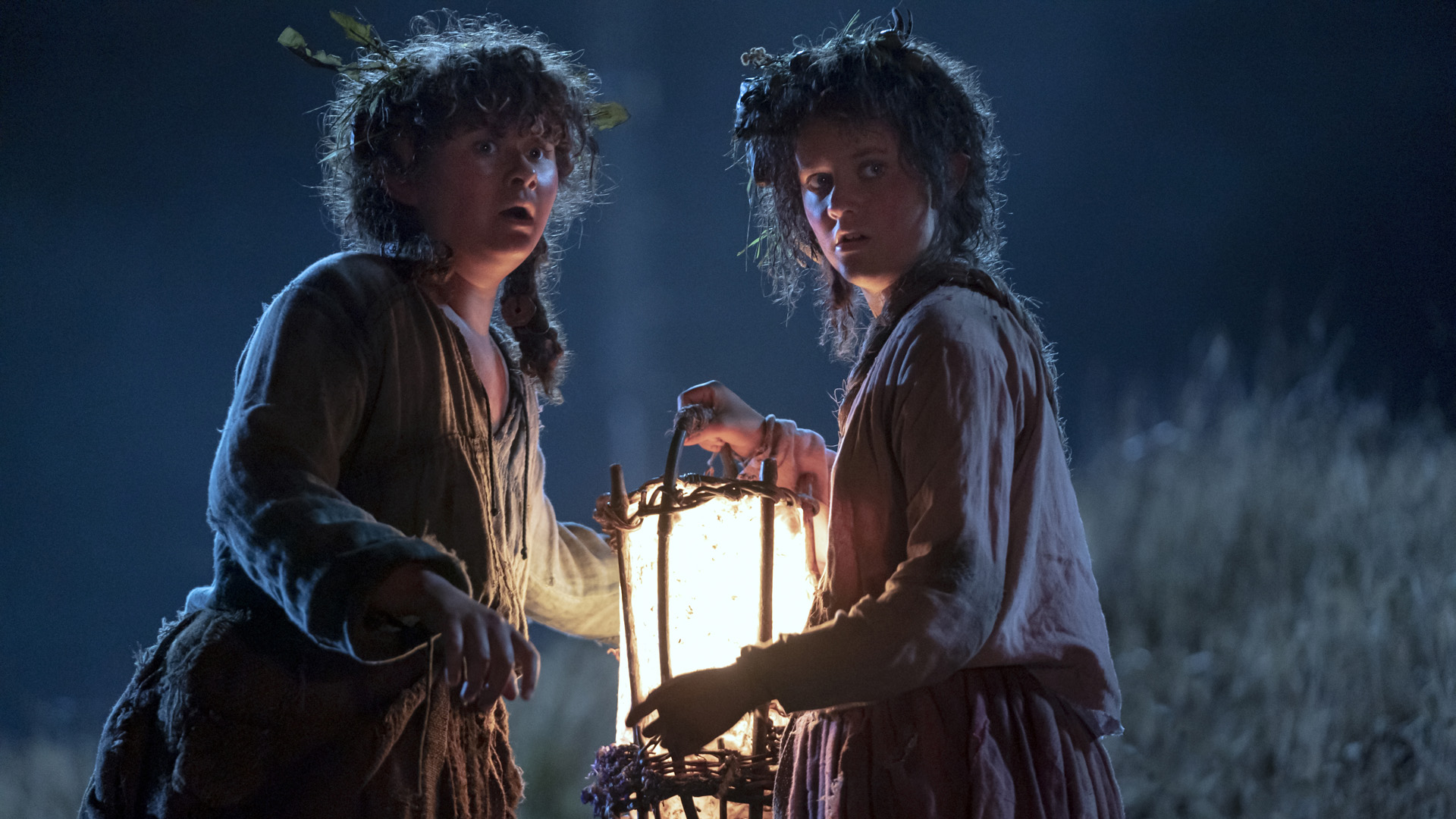
Given the live-action Lord of the Rings productions that precede The Rings of Power, established Tolkien fans will already know about the series' endpoint – i.e. The Last Alliance of Elves and Men, who stand against Sauron in a bid to thwart his masterplan.
That colossal battle, though, is 50 hours away if Amazon's TV adaptation completes its five-season run. The Rings of Power, then, needs to set up a lot before it can begin to make strides towards its end game. As we note in our spoiler-free review, the first two episodes do an outstanding job of introducing viewers to its extensive cast, multiple realms, and numerous storylines, though it sounds like more of those elements will be established throughout the show's first season.
"Season one is a whole journey in its own right," McKay explains. "We're reintroducing audiences to Middle-earth or, in the case of newcomers to the franchise, introducing Tolkien's fictional world full stop. The Second Age is beautiful, wild, and vast, and it's a time in Middle-earth's history filled with magic and evil. This season is about introducing all of that before we begin to add the darkness into the world. That'll spin the story in a delightfully unexpected direction before it launches our characters into season two."
The weight of expectation
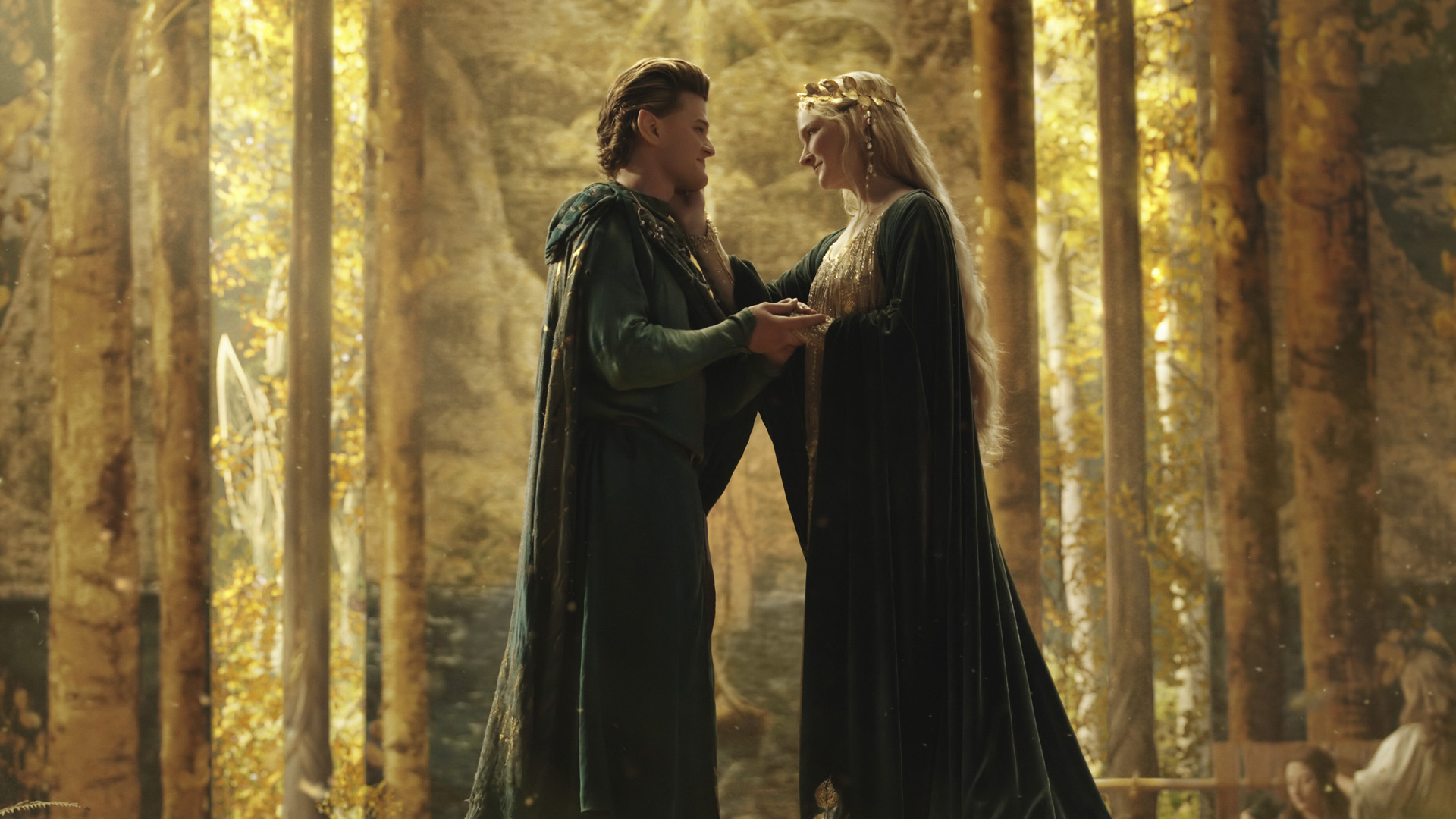
The burden of living up to Tolkien's legendary novels wasn't only felt by the creative team. Members of the Prime Video show's 23-strong main cast also felt a sense of duty in authentically capturing the personalities, traits, and complexities of the iconic characters who inhabit Middle-earth.
For Morfydd Clark and Robert Aramayo, who portray Galadriel and Elrond, that sense of pressure was two-fold. The duo had to bring youthful exuberance, naivety, and stubbornness to their iterations of these legendary elven figures. Equally, however, they also needed to live up to the fan-favorite live-action performances delivered by Cate Blanchett and Hugo Weaving, who played these ethereal beings in Peter Jackson's Lord of the Rings and Hobbit film trilogies.
He feels fate pulling him in the direction of becoming a leader
Lloyd Owen, Elendil actor
"Those films were part of my idea of Middle-earth going into this," Clark, who religiously watched Jackson's movies as a child, explains. "They were a great reference for where Galadriel was going, so it was fun to explore how far away she can be [from the character we see in those movies]. When we meet her, she's not someone who is used to needing, or learning from, anyone else. But she's vulnerable and needs help to survive before she becomes the iconic Lady of Lothlórien."
"What makes Elrond so brilliant in the books is he's able to recognize the fundamental thing of all peoples," Aramayo adds. "It's one of his defining traits and helps him create this safe space he creates for all races. I think that's the embodiment of being around so many different people and influences, and how he's pushed or told he's wrong. He's trying to learn from everyone he meets and become a better elf because of it."
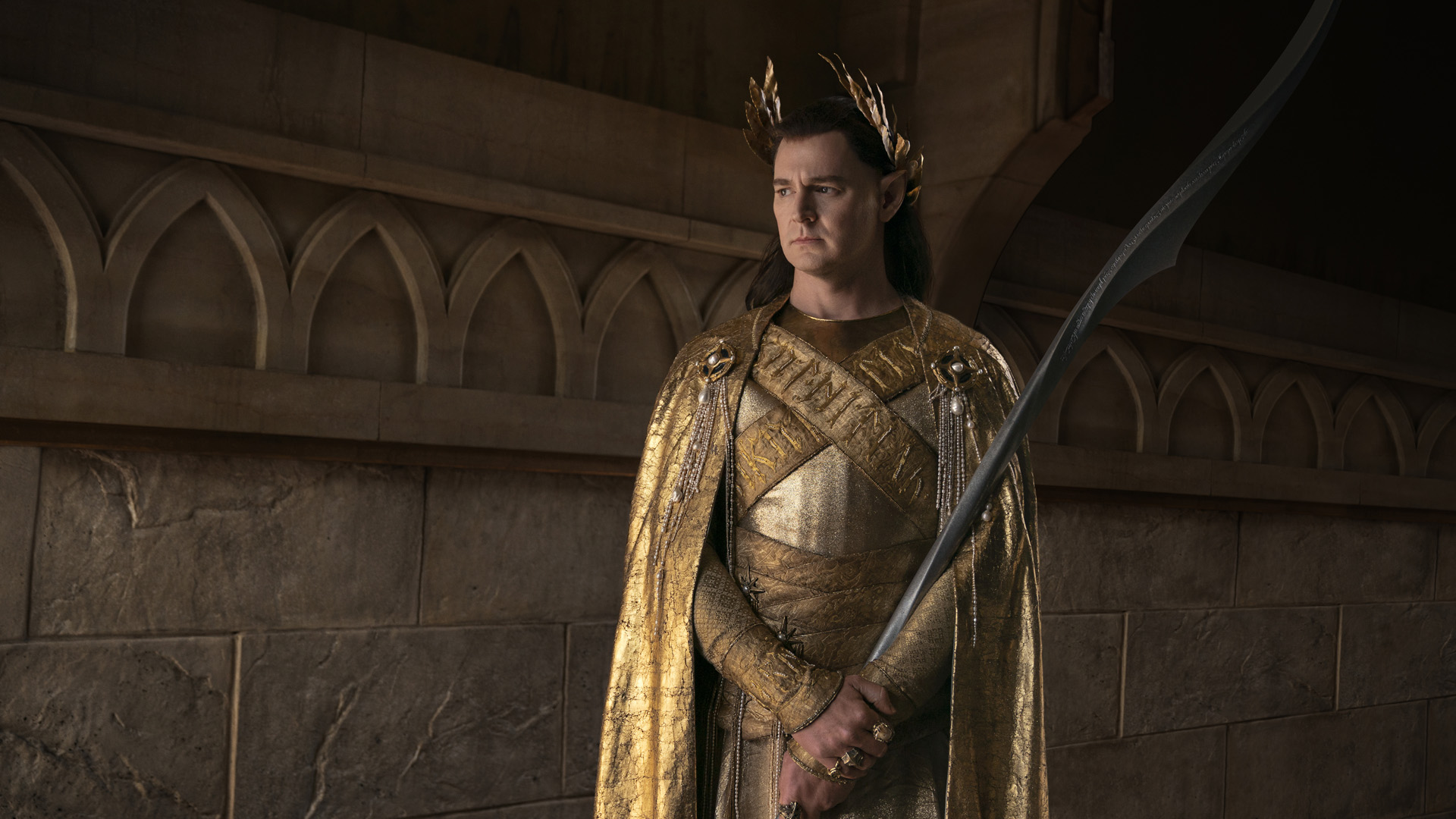
The Rings of Power doesn't just include legacy characters we've previously seen on the screen. The series also introduces individuals who exist in Tolkien's novels but whose backstories aren't fully fleshed out. Elven High-King Gil-galad (Ben Walker) and elven smith Celebrimbor (Charles Edwards), the latter who's responsible for forging the titular rings under Sauron's influence, are integral individuals in the Second Age's expansive story. But, with notable gaps in their literary histories, Walker and Edwards agree they had the "enviable opportunity" to expand on their Ñoldorin elves' character arcs from the source material.
Similar opportunities presented themselves to actors playing other new faces in a live-action Lord of the Rings project: the Númenoreans. An offshoot of the Edain, the most noble race of men from Middle-earth's First Age, Númenoreans dwell in their island kingdom (aka Númenor) and benefit from having longer lifespans, being taller, and possessing greater wisdom than men who live elsewhere.
Given the important role Númenor and its people play in the Second Age, audiences will be introduced to many Númenoreans who exist in Tolkien's books and appendices. That includes Queen Regent Míriel (Cynthia Addai-Robinson) and Elendil (Lloyd Owen), the latter of whom is the father of Isildur (Maxim Baldry), aka Sauron's slayer.
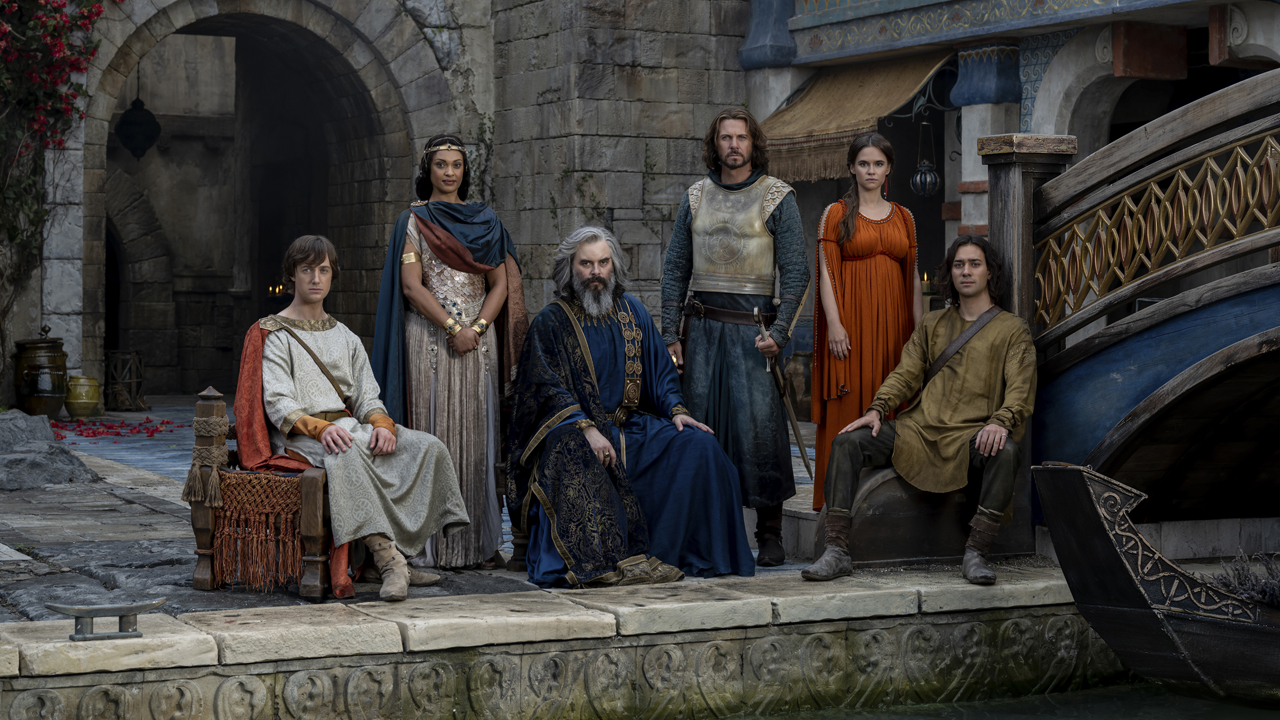
Like the tense politicking and backstabbing seen in HBO's Game of Thrones and House of the Dragon, Númenor becomes a battleground for power grabs and betrayals, meaning no one character can be classed as good or bad. As Charlie Vickers – playing a new human character called Halbrand, who encounters Galadriel early on in the show – suggests: "Tolkien deals with the themes of right and wrong, or good versus evil, but a lot of his characters have this gray area that makes them interesting."
Of the Númenoreans, though, Addai-Robinson and Owen's characters are the most likely to be classed as 'good', even if there's a moral complexity to them. Given their statuses as current and future Númenorean royalty, it's unsurprising that the pair looked to real world figureheads, plus the concept of leadership, to shape their character portrayals.
"I thought about what it would feel like that, from a young age, one day you'll lead your people," Addai-Robinson reveals. "In the meantime, you look at those who have lead before you and think about how you'll differentiate yourself as a leader. But you also need to understand that people might not be favorable to you or your type of leadership, and the sense of isolation of being in that position because, in the end, there are very few people who can relate to that or that you can confide in."
"Elendil is essentially a hero archetype," Owen adds. "He's trying to grieve for his dead wife and be a pillar of strength for his adult children, but he's also getting sucked into the politics of Númenor. So there's a battle between his head and his heart, and he feels fate pulling him in the direction of becoming the leader Tolkien fans know him to be."
Casting and corporate criticisms
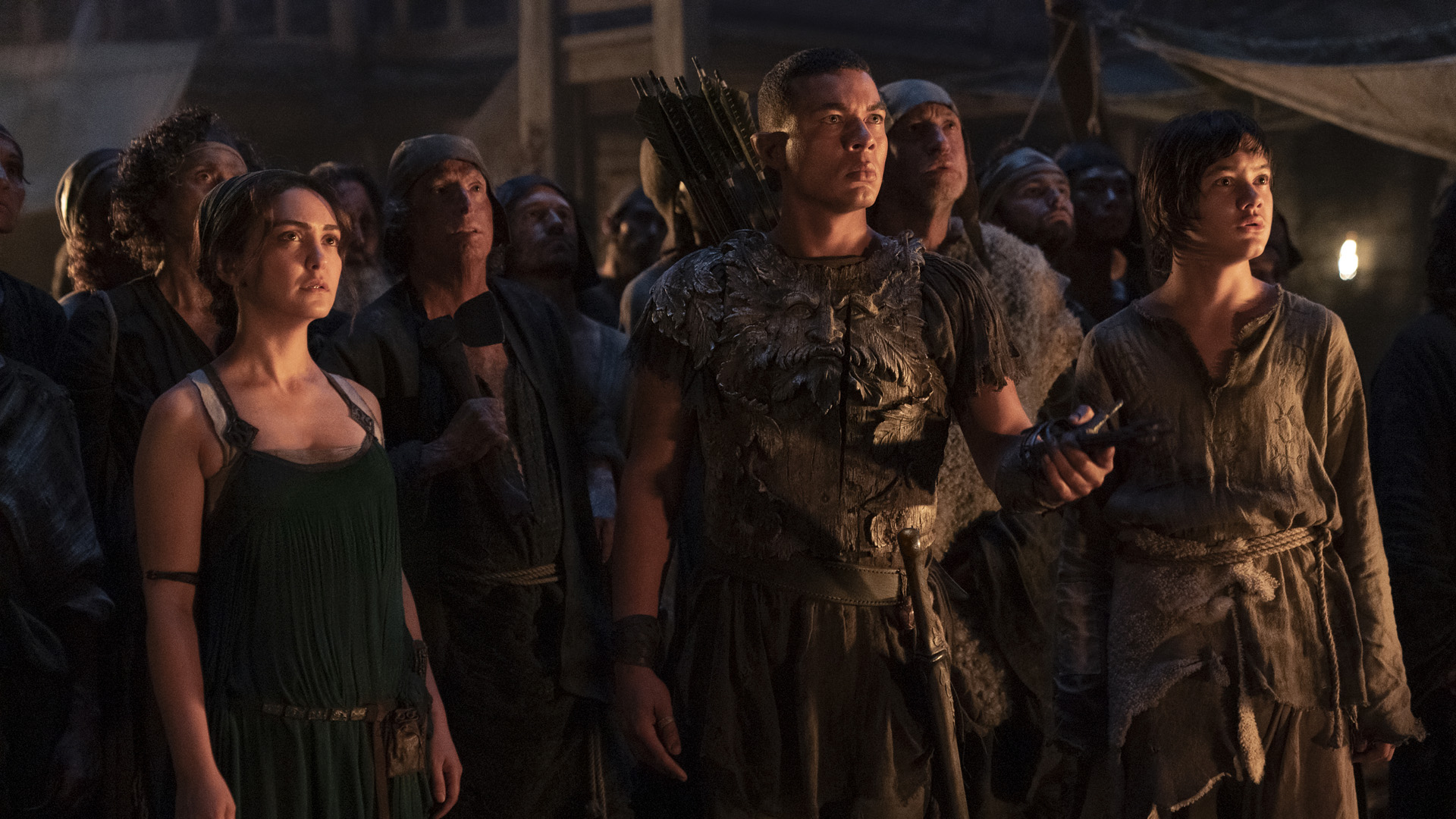
With its richly detailed world, substantial cast, and a crew comprising multiple Lord of the Rings fans, The Rings of Power is sure to reward viewers – particularly diehard Tolkienites – with its Middle-earth call backs, references, and Easter eggs. From its grand, physically imposing sets to the smallest costume details, Amazon's Lord of the Rings will be a goldmine of secrets just waiting to be discovered by audiences worldwide.
For some Tolkien fanatics, though, creative divergences from the source material simply can't be overlooked. Dishearteningly, that extends to some of the casting choices made for Amazon's Lord of the Rings. Some so-called fans have labeled the hiring of Puerto Rican star Ismael Cruz Córdova, British-Iranian actress Nazanin Boniadi, and Black actors including Addai-Robinson, Sophia Nomvete and Lenny Henry as "woke", "positive racism", and tokenistic hires where the creators are "too preoccupied with diversity" to concern themselves with more closely following the source material.
He's trying to learn from everyone he meets
Robert Aramayo, Elrond actor
For Boniadi, who – alongside the show's creative team – has regularly defended the show's diverse hires against accusations of "stunt casting", believes the romance that develops between her character Bronwyn and Arondir (Córdova) is symbolic of the ongoing fight against those who decry the need for inclusivity in the entertainment industry.
"Our relationship is a microcosm of what could be if we reach out and try to understand one another," Boniadi says. "What Bronwyn and Arondir have is a classic forbidden romance, but it's one typified by Bronwyn's ancestors, who chose to side with evil over good [in the First Age] and now Bronwyn's people are trying to redeem themselves. I think Bronwyn and Arondir's relationship speaks to how we [humanity] should put aside our differences, form a collective union, and move beyond our past."
Then there's Amazon itself. The multinational company bought the rights to The Rings of Power for $250 million in November 2017; a figure industry insiders called "insane" at the time. Since then, Amazon insiders have even claimed that the company's entertainment division would "face an existential crisis" if the show fails to be a critical and commercial success. In order to recoup the first season's vast financial outlay, Amazon would need to add a reported 5.1 million new subscribers to its already sizeable 200 million fanbase.
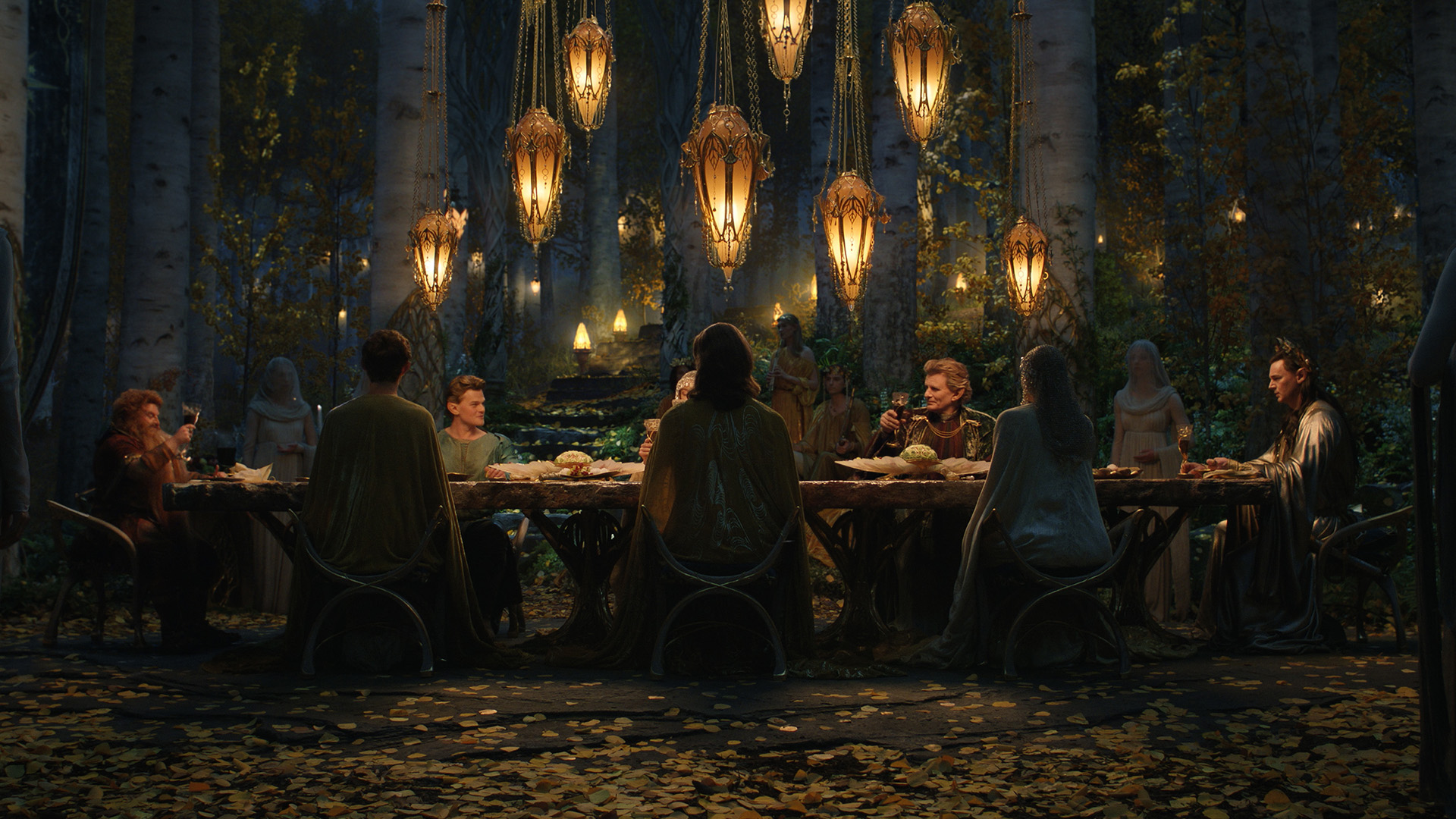
Add in Embracer Group's recent acquisition of Middle-earth Enterprises – a deal that grants the Swedish videogame giant worldwide rights to The Lord of the Rings and The Hobbit IPs – and some Tolkien fans aren't happy with the way that the author's iconic works have been reduced to corporate cash grabs by the globe's biggest companies. Perhaps understandably, some diehards believe that The Lord of the Rings' soul is being ripped apart as corporations vie for a slice of the money-spinning pie.
Unlike the theme of good versus evil at the heart of Tolkien's works, though, that suggestion isn't as black and white as it appears. Tolkien's beloved novels are timeless; stories that have resonated with generations and will continue to do so for decades and centuries to come. If they weren't, his works would struggle to acquire new fans, eventually consigning Tolkien's books to the annals of history.
The Rings of Power wouldn't exist if fans, such as Payne and McKay, didn't wonder about the untold Middle-earth stories Tolkien never got around to writing. As Charles Edwards, who portrays Celebrimbor, muses: "Tolkien was always peeking through doors to see what's there. He does that all the time to the reader – he implies something and then leaves it hanging. Or he refers to something from the First Age but doesn't really develop it."
Like the inquisitive Hobbits and Harfoots that occupy Middle-earth, Payne, McKay and company are simply filling in those gaps for the rest of us. That may be considered breaking with tradition by some fans, but who among Tolkien's fanbase hasn't curious about the gaps in Lord of the Rings' multi-Age timeline? Really, that's a testament to the book series' everlasting appeal and why some fans want to tell new, fascinating stories in Tolkien's fictional universe.
"Don’t adventures ever have an end?" Bilbo Baggins, star of The Hobbit muses in Tolkien's iconic book. "I suppose not. Someone else always has to carry on the story" – and The Rings of Power does just that.
The Rings of Power's first two episodes are available to stream on Prime Video now. New episodes will be released weekly every Friday.
As TechRadar's senior entertainment reporter, Tom covers all of the latest movies, TV shows, and streaming service news that you need to know about. You'll regularly find him writing about the Marvel Cinematic Universe, Star Wars, Netflix, Prime Video, Disney Plus, and many other topics of interest.
An NCTJ-accredited journalist, Tom also writes reviews, analytical articles, opinion pieces, and interview-led features on the biggest franchises, actors, directors and other industry leaders. You may see his quotes pop up in the odd official Marvel Studios video, too, such as this Moon Knight TV spot.
Away from work, Tom can be found checking out the latest video games, immersing himself in his favorite sporting pastime of football, reading the many unread books on his shelf, staying fit at the gym, and petting every dog he comes across.
Got a scoop, interesting story, or an intriguing angle on the latest news in entertainment? Feel free to drop him a line.